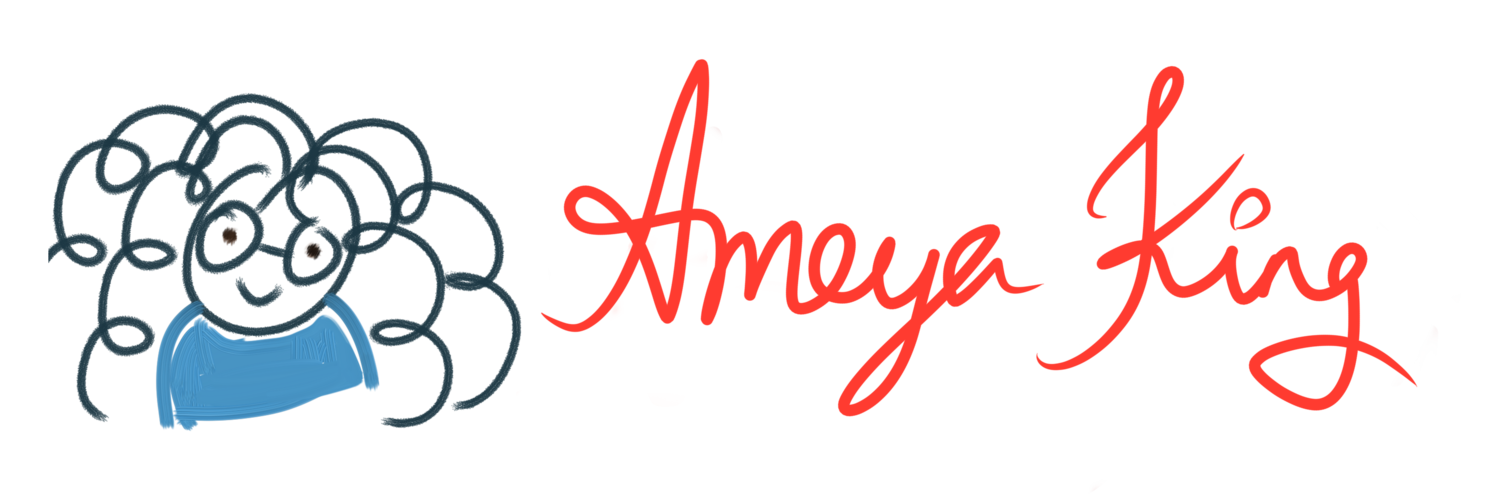A story of courage
Last month, I had a bit of an a-ha moment while I was in my dance class about the way we show up to things and how that impacts the work we do.
One of the students preparing for a program had been quite lackluster in that particular class. In fact, she had backslid compared to her previous rehearsals and she seemed almost disengaged. In a moment of clarity, I realized it was about controlling the outcome. And I realized it was a behavior I’ve practiced as well on and off over the years.
See, it works something like this: you’re working on something big and scary. You’re not sure how the outcome is going to be, and you’re afraid it won’t go well. The more protective - dare I say, primitive? - part of your brain decides what is most important is to control the situation. How? Don’t show up. Half-ass it. If you don’t practice, and it goes poorly, it’s a controlled outcome. You know how it’s going to turn out, so you don’t risk giving everything you’ve got, only to find out you’ve come up short.
A different way this time of self-sabotage shows up is just not taking the shot. If you never apply, if you never perform, if you never make the request, you can never be rejected.
I’m definitely guilty of this particular tactic. And I hide under the well-constructed armor of being too busy. If I never reach my dreams, that will be why.
But, I did promise a story of courage, so I’ll tell you what I shared with my students in class that day. This is a true story.
Thirty-four years ago, my grandfather gave me the gift of my name - not Ameya, which is what my family called me (and eventually, everyone else), but Girikarnika. It was a rare raga, one I had seen in catalogs of ragas but never heard. In addition to this name (which I always felt was very heavy for a premature infant that fit in the palm of her mother’s hand), he wrote a song in that raga for the Mother Goddess. At some point, the yellowing, crumbling paper was laminated. Last year, I got my hands on it.
I have never heard it sung, not by him, and certainly not by anyone else. Neither had my mother or my grandmother. My grandfather has never set foot in my home. We moved in after he was moved to hospice care, four days after I was last able to see him and two days before he breathed his last. But his presence is everywhere: in the Ganapatis throughout my home, in the sunny sitting spots throughout the house, the wooden shutters that remind me of their home in Dhanbad, and in the calm space that is my dance studio, where a smiling photo of him has taken permanent residence. The laminated paper with the Girikarnika composition sat on my console table in that room for months, and I would occasionally look at it, wishing the swarams and sahityam would reveal themselves to me.
One day last December, they did. On a whim, I started feeling out the swarams and I found the cadence of the lyrics, the peaks and the valleys of this unfamiliar melody, and it slowly revealed itself. It sounded like a song. It sounded real. I shared a couple of rough takes with trusted friends who had much more musical education than me, for a sanity check, and then set that piece aside.
The first weekend of September, one of these friends called me up first thing in the morning, and I asked. “Should I sing Tatayya’s song for his memorial concert?” He told me, unequivocally, yes. And so I did.
The a-ha moment I had in dance class soon after was that the opposite of fear is not bravery. It is curiousity. Bravery is a response to fear, but curiousity is the rejection of fear.
If I had operated from a place of fear, I would have been afraid of not being a “proper” vocalist, of not doing justice to his work, of making a fool of myself. I would have never let that song leave the safe four walls of my dance studio. And I would have controlled the outcome by just not singing that piece.
The thing is, no one would’ve even realized it was missing if I didn’t record myself singing and share it. But I am so glad I chose to do so. my expected contribution for this program was dance and that would have been the safe option.
But, with a bit of encouragement, I chose to be curious. I chose to see how it sounded, be adventurous in pushing my own musical limits, to trust the foundations Tatayya had given me and to trust my own musical intuition about aesthetics. Instead of thinking “what if I royally mess this up,” I thought, “what if I figure out how this song sounds.”
And I am so glad I did. It went out in the world (to however many people tuned in for that memorial concert, at least). My mother and my grandmother got to hear another song my grandfather had written. I got to experience Girikarnika ragam, my namesake.
And I can tuck away that confidence I felt that day, so that the next time I stand at the forked path between fear and curiousity, it is easier to choose the latter.
(And I say that as if that’s not a near-daily battle between curiousity and fear, between a leap of faith and safety of terra firma. There’s a reason I hadn’t posted this for literally weeks after the incident. But I’m choosing to lean in, this Vijayadasami. Do join me.)
Love & Light 💙
